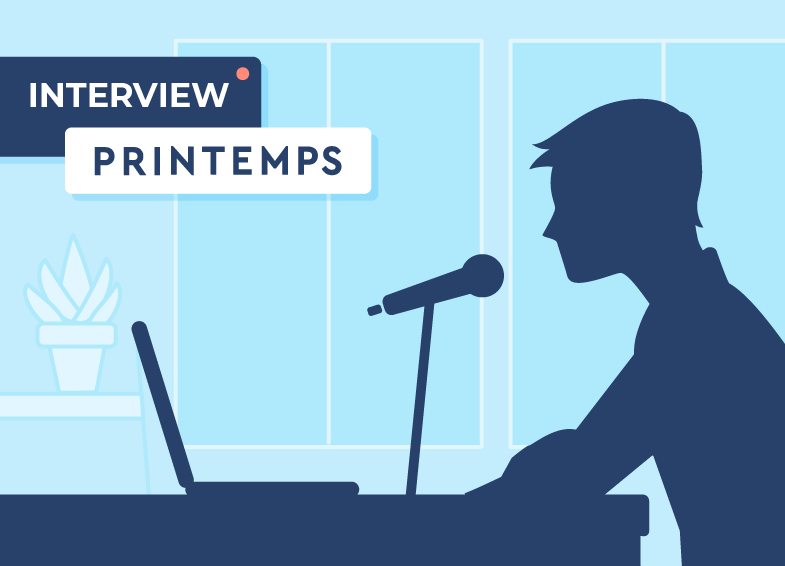“The best way to convince is to prove by example”: Clémence Bussière, Head of CRM & Acquisition @Printemps


Catégorie : Tendances marché
Today we’re talking with Clémence Bussière, Head of CRM and Acquisition at Printemps.
This interview is also available in French.
My name is Clémence Bussière, and I’ve been working in CRM for 16 years.
After 10 years in consulting, I joined Oui SNCF for 3 years, serving as Head of CRM and Relationship Marketing.
For the past two years I’ve been at Printemps, where I’m in charge of CRM, the loyalty program and drive-to-store acquisition strategy.
My routine is more of an evening one. I look at my schedule for the next day, make sure that I haven’t forgotten to prepare for a meeting, and take a little time to review the relevant topics.
In the morning, I like to start my day with a good coffee.
I don’t really have any marketing secrets, I think it’s more a question of being resourceful in management.
This past year was complicated for everyone, and we had to manage everything in real time. The challenge for me was how to keep a motivated team within this context of distance, of part-time and remote working.
I think my overall approach is rooted in test & learn practices. The best way to convince is to prove by example, as opposed to grand principles. This is why we’ve set up proofs of concept, with tools showing the impact of our actions and what they bring to the company.
Printemps has gone through a lot over the past year, and I think this difficult time has really boosted the brand’s modernization.
This period has enabled us to refine our strategy and become more agile. We’ve developed all of our distance selling activity, which didn’t exist before, and we’ve moved much more towards digital.
At my level, the crisis didn’t present any specific opportunities for our team, but budget constraints did push us to be more creative. In situations where before, we would have called on agencies for help with our creative strategy, instead we said: let’s to try to develop it ourselves.
More agility and creativity. And more challenges in day-to-day operations, in terms of processes and finding balance.
Yes, taking the reins back in a lot of areas, and regaining control of our base.
So maybe that’s where the opportunity lies: getting back to basics in order to move forward again and take a different perspective.
I think it’s crucial to always be on the lookout, always be alert to what’s happening in the industry.
What I find exciting these days is how Martech has revolutionized our work. All of these developments are relatively recent.
Today, there are so many tools available that make our jobs easier and allow us to go faster, to progress. It’s important to benchmark them and take an interest in them, because they allow us to be better at what we do.
I don’t have any references in particular, I like to pick and choose across the board. I learn a lot through social networks and LinkedIn, where there’s plenty of content. At our age, we have considerable networks, so we’re constantly inundated with information.
I also love everything that brings advertisers together: l’Union des marques (a French marketing association), events like Monaco (One to One Retail E-Commerce), consulting firm conferences. We didn’t have any this past year, but these are really good opportunities to meet people and see demos.
Fortunately, I haven’t experienced too many professional failures.
Of course, I’ve had campaign ideas and other actions that didn’t work out, endeavors that weren’t realized. When that happens, I usually bounce back by focusing on success in other projects.
Don’t do it!
No, seriously… I would tell myself to diversify my skills a little more. If I had to do it over again, I think I wouldn’t stay specialized in CRM for quite so long, because hyper-specialization can end up closing some doors. That may not be a great thing to say, but it’s been my experience.
That’s interesting, I totally understand that. And with your teams today, do you tend to recruit people who are multi-skilled or more specialized?
When it comes to recruitment, I take the American approach – with more of a focus on personalities and potential.
Of course, in CRM, you need a certain appetite for numbers. But I’ve recruited a lot of people who didn’t necessarily have that CRM expertise, trusting my instincts instead.
I believe in people’s potential, and their ability to learn and progress. Unfortunately, some recruiters don’t see things that way, but that’s a typically French attitude.
I don’t really have any mantras in my professional life.
Since we work in a field that is constantly evolving, it’s important to stay tuned in. A solution that is seen as great one day won’t be so great the following year.
What I like about my job is that it’s always changing, and if you want to stay effective, you have to continually challenge yourself. So rather than follow one way of thinking, you need to keep an open mind.
On some level that could actually be considered a mantra, that openness and the idea of questioning what you do. As you point out, test & learn remains an important philosophy in our field, and could be seen as a mantra.
In a way, yes. In the world of CRM, you have to be humble.
The channels aren’t the same as they were 10 years ago, CRM is done differently today. Five years ago, everyone stopped print marketing because it was seen as “too expensive”. Now print is so rare that it’s becoming a preferred channel again. Email was the dominant channel, now it’s saturated.
With the ongoing evolution of technology, being successful in CRM means staying humble and open. We never know everything, there’s always more to learn, and that’s what I like about it.
Sommaire